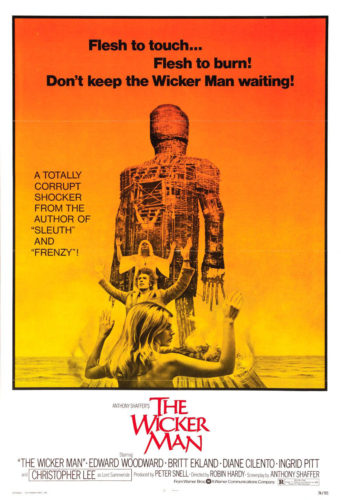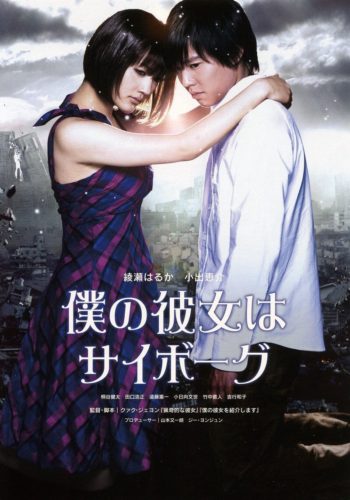 No Time to Die (2021) – Opinions on this, the final outing of Daniel Craig as James Bond, are fiercely divided, and it’s functionally impossible to discuss the bone of contention without substantive spoilers, so you have been warned.
No Time to Die (2021) – Opinions on this, the final outing of Daniel Craig as James Bond, are fiercely divided, and it’s functionally impossible to discuss the bone of contention without substantive spoilers, so you have been warned.
I think that my opinion is much more positive than that held by so many because I watched most of the Daniel Craig outings in quick succession, and thus I experienced them as an overarching story, rather than as one-off episodes with no internal continuity, as the pre-Craig installments of the franchise had trained viewers to expect. The rebooted/reimagined Bond from Casino Royale onward was a man who changed with his experiences; he aged; he bored scars, internal and external. He had a childhood and a past. He made commitments. He was not the boyish superspy fantasy who would end up happily with the current Bond girl at the end of one movie only to have her utterly forgotten by the beginning of the next. And most importantly, while the 007 persona has largely been a male fantasy of emotional invulnerability coupled with a complete lack of responsibility, the James Bond of the Craig era slowly learned that the greatest satisfaction is found where thousands of years of Judeo-Christian culture had placed it: in a life of committed, growing love.
The big question: Where will the franchise go now? Even without the “James Bond Will Return” teaser at the end of the credits, it would be unimaginable that they’d finally put down the fifty-year cash cow. My vote would be for a series of period James Bond features contemporary with the original novels — set in the 1950s and ’60s, with James Bond as a WWII vet. (And give him that white scar on his cheek that’s mentioned in all the books.)
 The Wicker Man (1973) – It’s been so long since I’d last seen this (and I think I had fallen asleep), that it’s pretty much a first viewing for me. That’s fine; this isn’t a movie that a teenager can accurately assess and appreciate.
The Wicker Man (1973) – It’s been so long since I’d last seen this (and I think I had fallen asleep), that it’s pretty much a first viewing for me. That’s fine; this isn’t a movie that a teenager can accurately assess and appreciate.
“Folk horror” has become a thing in the ensuing decades since this was made, and while The Wicker Man certainly didn’t invent it (time was that ALL horror was folk horror), it definitely made it A Thing, especially in cinema (similar to the way that The Matrix brought virtual-reality stories into the mainstream). But unless well-versed in horror cinema, especially British horror, modern audience will miss the “meta” subversion of expectations of having a slew of Hammer Film faces in a common Hammer Films setting… and a decidedly non-Hammer plot.
(Nitpick: I really dislike movies named after some plot feature that only shows up in the last five minutes.)
 Cyborg She (2008) – No, this isn’t a sexy “gravure idol” flick with an SF veneer, although it is a cute romantic flick built around a time-travel idea. (And a cyborg, although the fact that she has human skin — her one organic component — is only mentioned once, and then contradicted later.) A 21-year-old’s future self sends a cute but unemotional cyborg (Haruka Ayase) back in time to (a) save him from a catastrophe, and (b) let him teach her to be human.
Cyborg She (2008) – No, this isn’t a sexy “gravure idol” flick with an SF veneer, although it is a cute romantic flick built around a time-travel idea. (And a cyborg, although the fact that she has human skin — her one organic component — is only mentioned once, and then contradicted later.) A 21-year-old’s future self sends a cute but unemotional cyborg (Haruka Ayase) back in time to (a) save him from a catastrophe, and (b) let him teach her to be human.
It’s a pleasant diversion, but it falls apart in the last act as it tries desperately to make the previous two acts plausible; it also sets up time travel causality rules which it promptly breaks.
(Nitpick: I really dislike movies named after some plot feature that only shows up in the last five minutes.)
Heh…like some of those early Dario Argento films? or Kiss of the Dragon?
KISS OF THE DRAGON and STARCRASH were the two that came to mind (and I love STARCRASH, but for all the reasons I should hate it).
Sorry, I’m not a guy and I’m STILL going to object to the Wokeness of the 2020’s Bond franchise. You want a socially-responsible, not-male spy? Great, make a new one. Or use Atomic Blonde’s character, or, or, or.
The Bond of the “last” Bond film is a neutered shadow of his former self and honestly–I turned it off. I have ZERO interest in a female 007. I don’t know why modern-day “feminists” (or whatever you wish to call them) feel that they have to poach that which has been predominantly male territory, like pissing on his leg. It’s…tedious to watch and highly ineffective. There is a reason that the older Bonds still run, still get watched and all that.
That you feel that the final Bond movies support what you feel is the “right” mode–a committed, growing love yadda–that’s fine, but that was *never* what Fleming wrote. I don’t want to see Nero Wolfe 200 lbs thinner, riding a moped, either. Ya know?
So it wasn’t what Fleming wrote? Fleming also didn’t write a puckish playboy whose main “skills” are being a target, spreading sperm indiscriminately and pissing off his bosses with his irresponsibility, yet that’s what the pre-Craig franchise had been for decades. Your argument isn’t that the Craig movies are “never what Fleming wrote”; they’re a different “never what Fleming wrote” than the franchise up to that point. You also must have missed my suggestion for what to do with the franchise now: Set Bond in the era in which he was created, i.e., RETURN TO WHAT FLEMING WROTE.
The final Craig Bond wasn’t transitioning the franchise to either a female Bond, or a Bond who kisses his wife and child goodbye each morning before he goes to be a superspy; it’s an END to the arc. This is how James Bond stops being a disconnected killing machine for the government. Complaining that at the end (even ignoring his death) he’s no longer the Bond he was before the final chapter is like complaining that Frodo at the end of LOTR is a betrayal of the character because he no longer has the Ring. That’s the POINT; the arc is finished with resolution, one way or another.
Yes, Nathan–I understand what you wrote. The Fleming novels were (0ther than the special effects and comedic foofery) pretty much what was displayed for decades, prior to the advent of the Craig group. I agree that Bond didn’t run around pissing off his bosses indiscriminately, but spreading sperm–oh, yeah.
And sure, that was then and this was now, but he was never…I guess the way I would phrase it is, a 2020’s metrosexual. Tamed and domesticated. He was a different character for a different era. I thought the franchise was headed this way after Craig’s first movie and surprise!–I wasn’t wrong. All that Sturm und Drang, all the DRAMUH about how he’s all traumatized about his g/f dying…meh.
I don’t have a problem with the idea of harkening back to the original Bond–but I do think it will NEVER happen. For crying out loud, Timothy Dalton’s Bond was the closest to the Fleming Bond, long that lasted. People for what, 20 years, clearly wanted the…goofier Bond, the Roger Moore Bond (which I also didn’t, for the record, like). Actually…after Connery, I next liked Dalton’s scripts and after that…well…Not many, to be honest. I’d rather go back and re-read Fleming.
I’m trying to think of some films or shows that have been set retroactively, that I’ve seen lately–having lived through those eras as an adult–and they’re all set and cast, etc. using today’s sensibilities. The last show that was even remotely close was Mad Men. I think it’s blindingly obvious that Mad Men would have died a terrible horrible death in the era of Twitter.
Frodo? People who complained about Frodo, the ring, and all that–they clearly did *not* read the books. There’s a reason that 50 years ago, “FRODO LIVES!” was all over the Manhattan and SF subway and metro stations.
Look, you liked it. More power to you. I most certainly didn’t–and I didn’t much care for the however-many that came before it, either.